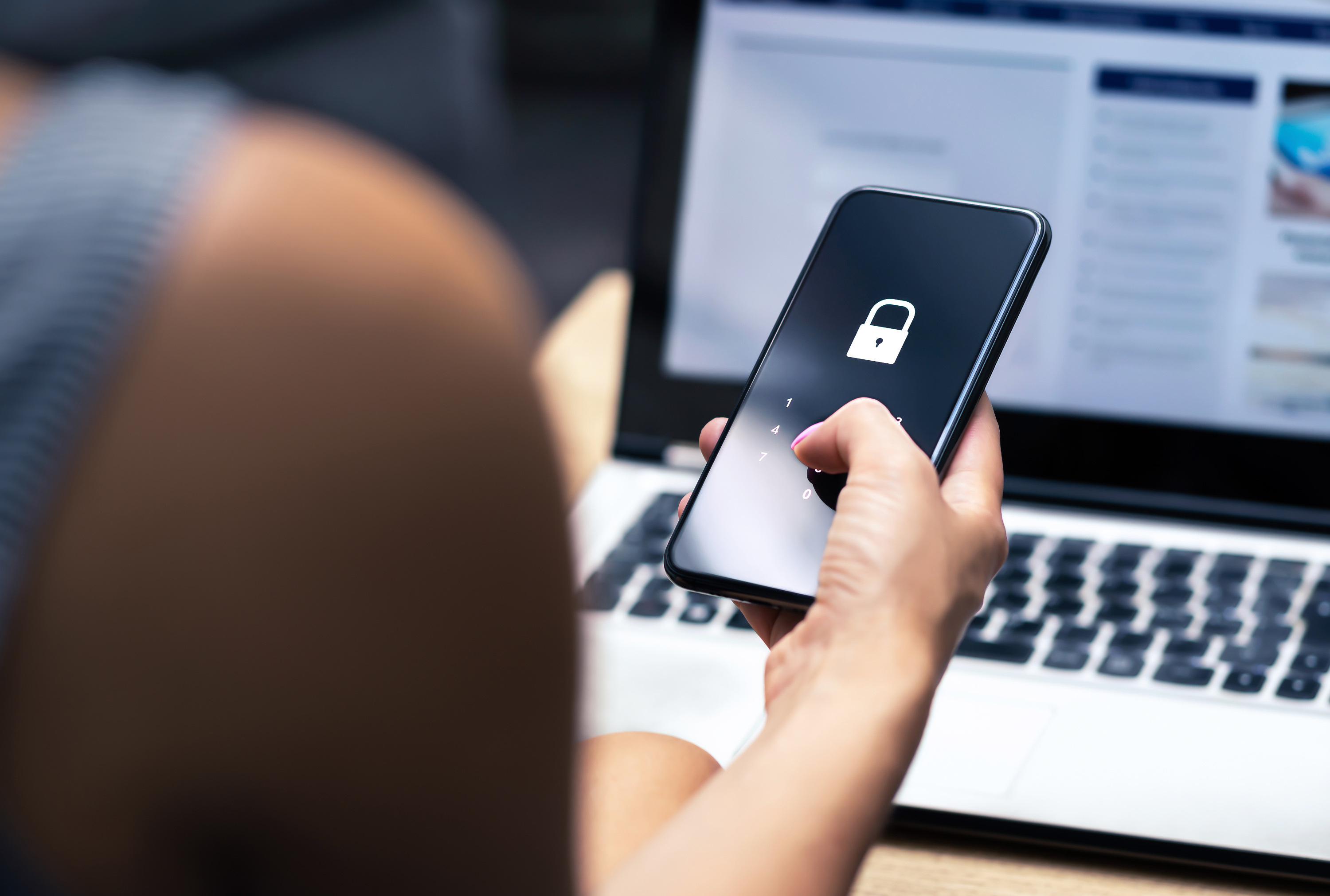It is a large-scale attack whose contours are difficult to discern. This Wednesday, February 7, the CNIL lifted the veil on a massive data leak concerning two health operators, Viamedis and Almerys. “In total, this data leak concerns more than 33 million people,” details the CNIL in its press release.
The data concerned are, for policyholders and their families, marital status, date of birth and social security number, the name of the health insurer as well as the guarantees of the contract subscribed. “Neither banking information, nor medical data, nor health reimbursement, nor postal details, telephone numbers or even emails are affected,” assured several mutual insurance companies in messages addressed to their customers. But then what can hackers do with this data?
“It’s as if the hackers had stolen keys or master keys,” analyzes Denis Jacopini, legal expert in cybercrime. This data can now be resold or used by hackers on the same network for a return on investment. Several options are then available to scammers. “They can try to pass themselves off as you to institutions or companies,” says the specialist. For example, the social security number is necessary to connect to your Ameli account. Once infiltrated into their victim's account, scammers can divert allocations to their own bank accounts.
“Scammers can also pose as organizations and try to deceive you,” adds Denis Jacopini. With data like name, date of birth and insurance contract details, a hacker can easily pose as a bank or insurance employee to extort money from users whose details have leaked . “With certain well-chosen details, it is quite easy to gain the trust of certain people,” assures the cybersecurity specialist. “This personal information will make it possible to carry out very effective fishing campaigns, by email or SMS,” confirms Pierre Penalba, former head of the first group to fight against cybercrime of the National Police. Fake messages with all your contact details will appear larger than life.”
To prevent scams that could happen. Denis Jacopini recommends remaining on your guard. “If someone shows up on the phone as your bank or insurance advisor and asks you for an unusual action, it’s probably a scam,” warns the expert. The safest way is to make a return call to the usual number or to a number listed on official documents. “It’s the only solution to be sure to speak to the same person,” insists Denis Jacopini.
For her part, given the scale of the attack, the president of the CNIL decided to carry out investigations in order to determine in particular whether the security measures implemented prior to the incident and in reaction to it were appropriate. with regard to GDPR obligations. “How did the hackers manage to penetrate the company site and why the data was not encrypted?, asks Pierre Penalba. Everyone has the right to ask themselves the question.” This Thursday, February 8, the Viamedis site, one of the two hacked operators, was suspended "so that it can be reopened in maximum security conditions, as quickly as possible" according to the message on the page of welcome.

 Gaza: under the spotlight, the Israeli-Palestinian conflict shakes up the Eurovision contest
Gaza: under the spotlight, the Israeli-Palestinian conflict shakes up the Eurovision contest Black soldier killed by a police officer in the United States: the sheriff publishes the video of the arrest
Black soldier killed by a police officer in the United States: the sheriff publishes the video of the arrest In Malmö, the Eurovision party transformed into entrenched camps
In Malmö, the Eurovision party transformed into entrenched camps In Russia, Vladimir Putin stigmatizes “Western elites”
In Russia, Vladimir Putin stigmatizes “Western elites” “Mediterranean diet” or “DASH”, two good tips for eating better
“Mediterranean diet” or “DASH”, two good tips for eating better Fatal case of cholera in Mayotte: the epidemic is “contained”, assures the government
Fatal case of cholera in Mayotte: the epidemic is “contained”, assures the government The presence of blood in the urine, a warning sign of bladder cancer
The presence of blood in the urine, a warning sign of bladder cancer A baby whose mother smoked during pregnancy will age more quickly
A baby whose mother smoked during pregnancy will age more quickly The government launches a consultation on birth leave
The government launches a consultation on birth leave Netflix, Disney ... 7,000 French artists demand better remuneration from streaming platforms
Netflix, Disney ... 7,000 French artists demand better remuneration from streaming platforms The government plans a merger of French public broadcasting in 2026
The government plans a merger of French public broadcasting in 2026 “Choose France”: more than 15 billion in foreign investments made official
“Choose France”: more than 15 billion in foreign investments made official Planet of the Apes tops the North American box office
Planet of the Apes tops the North American box office The Roman Polanski-Charlotte Lewis face-to-face before French justice on Tuesday
The Roman Polanski-Charlotte Lewis face-to-face before French justice on Tuesday Films created by artificial intelligence now have their festival
Films created by artificial intelligence now have their festival Disappearance of Nikus Pokus, member of the rap group Svinkels
Disappearance of Nikus Pokus, member of the rap group Svinkels Omoda 7, another Chinese car that could be manufactured in Spain
Omoda 7, another Chinese car that could be manufactured in Spain BYD chooses CA Auto Bank as financial partner in Spain
BYD chooses CA Auto Bank as financial partner in Spain Tesla and Baidu sign key agreement to boost development of autonomous driving
Tesla and Baidu sign key agreement to boost development of autonomous driving Skoda Kodiaq 2024: a 'beast' plug-in hybrid SUV
Skoda Kodiaq 2024: a 'beast' plug-in hybrid SUV The home mortgage firm rises 3.8% in February and the average interest moderates to 3.33%
The home mortgage firm rises 3.8% in February and the average interest moderates to 3.33% This is how housing prices have changed in Spain in the last decade
This is how housing prices have changed in Spain in the last decade The home mortgage firm drops 10% in January and interest soars to 3.46%
The home mortgage firm drops 10% in January and interest soars to 3.46% The jewel of the Rocío de Nagüeles urbanization: a dream villa in Marbella
The jewel of the Rocío de Nagüeles urbanization: a dream villa in Marbella Diving into the secrets of the National Assembly
Diving into the secrets of the National Assembly Institutions: senators want to restore the accumulation of mandates and put an end to the automatic presence of ex-presidents on the Constitutional Council
Institutions: senators want to restore the accumulation of mandates and put an end to the automatic presence of ex-presidents on the Constitutional Council Europeans: David Lisnard expresses his “essential and vital” support for François-Xavier Bellamy
Europeans: David Lisnard expresses his “essential and vital” support for François-Xavier Bellamy Facing Jordan Bardella, the popularity match turns to Gabriel Attal’s advantage
Facing Jordan Bardella, the popularity match turns to Gabriel Attal’s advantage These French cities that will boycott the World Cup in Qatar
These French cities that will boycott the World Cup in Qatar Football: a Barça supporter tried in Paris in June for a Nazi salute
Football: a Barça supporter tried in Paris in June for a Nazi salute Ligue 1: FC Nantes breaks a sad record
Ligue 1: FC Nantes breaks a sad record PSG: whistled by supporters, Kurzawa responds abruptly on Instagram
PSG: whistled by supporters, Kurzawa responds abruptly on Instagram Rugby: “You push people to suicide”, Danny Cipriani attacks the tabloid press after a new article
Rugby: “You push people to suicide”, Danny Cipriani attacks the tabloid press after a new article


















